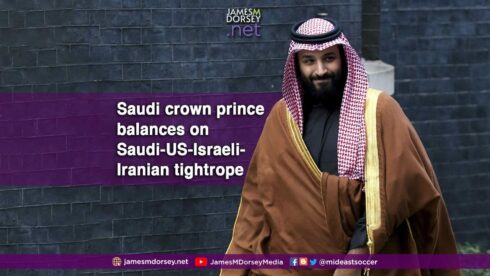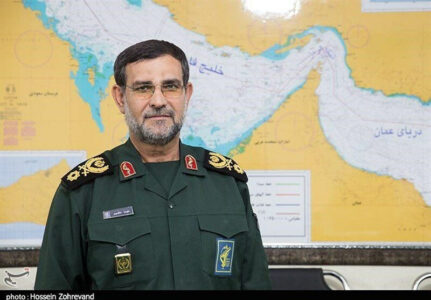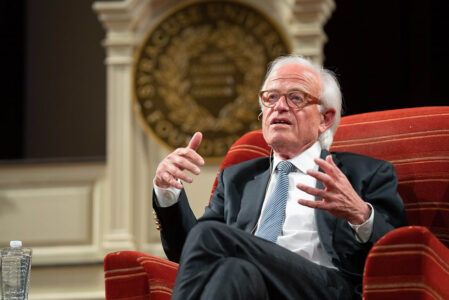Written by James M. Dorsey
Saudi Crown Prince Mohammed bin Salman has become adept at walking tightropes.
Mr. Bin Salman’s latest balancing act may be among his most challenging.
In a surprise development, Saudi Arabia and Iran, together with China, announced that the two Middle Eastern nations were reestablishing diplomatic relations.
The Saudi Iranian agreement was reached in a meeting in China of the two countries’ national security advisors.
The agreement was a rare example of successful Chinese mediation in Middle Eastern disputes and a likely gift to Beijing by the two Middle Eastern nations.
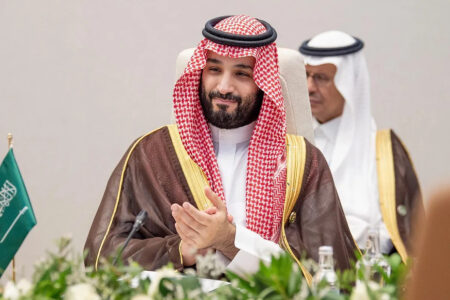
Mohammed Bin Salman, Prime Minister and Crown Prince of Saudi Arabia Phoro: Royal Court of Saudi Arabia/Anadolu Agency
Saudi Arabia broke off relations after Iranians stormed the kingdom’s embassy in Tehran in 2016 in protest against the execution of a prominent Saudi Shiite cleric.
A day before the Iranian announcement, the United Arab Emirates took the hedging of its bets a step further by agreeing with Iran to increase aviation cooperation.
Last year, the UAE reopened its embassy in Tehran that it closed at the time of the rupture in Saudi-Iranian diplomatic relations.
The reestablishment of Saudi Iranian relations further came as Iran upgraded its perception of Saudi Arabia as a security threat, Gulf efforts to prevent disputes with Iran from spinning out of control have not stopped the Islamic republic from increasing its military capabilities with the recent addition of a new warship and 95 missile-launching fast boats to its naval fleet and the reported acquisition of Russian Sukhoi-Su-35 fighter jets.
To be sure, Iranian weaponry is no match for Saudi Arabia’s armoury of sophisticated US and European weapon systems.
Even so, Iran’s military and Islamic Revolutionary Guards Corps (IRGC) are battle hardened and have proven to be creative in compensating for handicaps that result from harsh US sanctions.
Nevertheless, the announcement followed reports that Saudi Arabia had suggested that it could establish formal diplomatic relations with Israel in exchange for a legally binding US commitment to Gulf security, US support for a peaceful Saudi nuclear program, and more expansive American arms sales to the kingdom.
Tehran would likely view the deal as targeting the Islamic republic.
The reestablishment of relations between Riyadh and Tehran doesn’t take the Saudi suggestion off the table.
If anything, it positions both Saudi Arabia and Iran as constructive players in reducing regional tension, provided the agreement helps end the war in Yemen and proxy wars elsewhere.
Moreover, the agreement could give a new lease on life to so far failed efforts to revive the 2015 international agreement that curbed Iran’s nuclear program.
The agreement could force a change in some of the dynamics of the Saudi proposal.
Israel is a wild card even if f few would doubt the importance of an enhanced Israeli contribution to Gulf security facilitated by formal diplomatic relations between Saudi Arabia and the Jewish state.
Saudi Arabia, like the UAE, likes Israel’s covert war against Iran involving attacks on targets in the Islamic republic and Syria. At the same time, the Gulf states fear that they could be targets of Iranian retaliation.
A US defense commitment could reduce that fear. It could also embolden Israel at a moment that reestablished Saudi relations with Iran could change the dynamics of the two countries’ rivalry.
Earlier this month, Admiral Alireza Tangsiri, the Revolutionary Guards navy commander, warned Gulf countries against supporting Israel’s covert war.
“If they wish to attack us from the territory of any country or take advantage of the airspace of any country… We will indeed retaliate twofold and crush any area (from) which plots against Iran’s interests originate.” Mr. Tangsiri said.
Even so, fear of Iranian retaliation may be a lesser concern in negotiating a US-Saudi-Israeli deal that faces formidable obstacles. Moreover, reopening of Saudi relations with Iran may further calm those fears.
The upside of a three-way deal is evident.
It would enable Mr. Bin Salman to address his most immediate defense needs, significantly advance redrawing the Middle East’s geopolitical map, and establish a framework for the kingdom’s relations with the United States and China.
If concluded, the deal would create a pillar of a new initially bi- and, ultimately, tri-polar 21st-century world order with the United States and China as the initial superpowers, joined by India at a later stage, and multiple middle powers, like Saudi Arabia, with enhanced agency and leverage.
It would also open the door to recognition of Israel by multiple Muslim-majority states, particularly in Asia.
Equally importantly, the deal would reestablish Gulf confidence in US reliability as a regional security guarantor.
The US focus on China as a strategic adversary and its more recent prioritisation of the war in Ukraine, coupled with a past US reluctance to respond to Iranian attacks on Saudi and Emirati targets and disagreements over oil production levels and human rights, have undermined that confidence.
The difficulty is that overcoming the multiple obstacles to the proposed Saudi deal would likely involve policy, if not political change, in the United States, Saudi Arabia, the broader Muslim world, and Israel.
Garnering bi-partisan support in the United States for a formal agreement with Saudi Arabia seems near impossible, with many on both sides of the aisle in Congress ambivalent about the kingdom.
If a US commitment is possible, Mr. Bin Salman would have to demonstrate that he is a reliable US partner.
US doubts about Saudi Arabia have been fueled by Mr. Bin Salman’s brutal crackdown on dissent and freedom of expression; his conduct of the war in Yemen; and, at times, disruptive foreign policy moves, including the 3.5-year long Saudi-led economic and diplomatic boycott of Qatar.
“The Saudis…need to show that they are a responsible partner,” .” said former US diplomat and prominent analyst Martin Indyk.
The kingdom “cannot have it both ways. If it wants that kind of commitment from the United States, it has to line up with the United States… If our security relationship with Saudi Arabia is to be deepened because the Saudis want it, then there are certain obligations that come with that,” Mr. Indyk asserted.
One way Mr. Bin Salman could demonstrate responsibility would be by negotiating the terms of US support for the kingdom’s nuclear program.
Saudi Arabia is pushing to build 16 nuclear power plants. The kingdom last month received bids for the first facility.
Saudi Arabia has consistently said that its program is for peaceful purposes and that the kingdom is committed to putting its future facilities under the supervision of the International Atomic Energy Agency (IAEA).
Yet, as Iran inches ever closer to nuclear weapons capability, Saudi Arabia also aims to acquire the knowledge and technological building blocks to match Iran if it crosses a threshold for nuclear weapons production.
Saudi leaders, including Mr. Bin Salman, have warned that Saudi Arabia would develop its capability if Iran became a nuclear power.
Saudi Arabia has denied reports that it was building a facility for extracting yellowcake from uranium with the help of China. Saudi Arabia has large uranium deposits of its own.
These are developments that the United States wants to stop in its tracks by convincing the kingdom to accept safeguards required under US law that the Saudis have so far rejected.
The safeguards would force Saudi Arabia to drop its insistence on producing nuclear fuel, even though it could buy it more cheaply abroad.
The US Atomic Energy Act stipulates that countries that cooperate with the United States on nuclear energy must forgo domestic uranium enrichment and reprocessing of spent fuel.
US officials fear that the Saudi insistence potentially amounts to backing out of a 2009 memorandum of understanding with the United States in which the kingdom pledged to acquire nuclear fuel from international markets.
Yet, even if Mr. Bin Salman could convince the United States of his sense of responsibility and meet US conditions for nuclear cooperation, Israel remains the wild card.
The crown prince and other senior Saudi officials have made clear that they want a formal relationship with Israel, but that will only be possible by resolving the Israeli-Palestinian conflict in a way that considers both parties’ interests.
Prime Minister Binyamin Netanyahu heads a government that wants anything but.
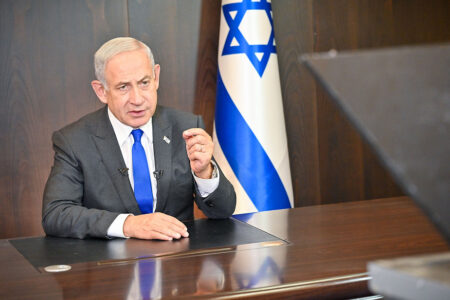
Prime Minister Binyamin Netanyahu holds a video conversation with members of AIPAC from his office in Jerusalem on January 9, 2023. Photo: Kobi Gideon/GPO
Mr. Netanyahu appears to assume that support of the Palestinians in Saudi Arabia and elsewhere in the Arab and Muslim world has diminished to the extent that given the choice of backing the Palestinians and security and technological cooperation with Israel, particularly against Iran, the kingdom will opt for Israel.
That calculation may only work in the unlikely event that the US makes a legal commitment to Saudi and Gulf security and the kingdom meets the United States’ nuclear conditions.
For his part, Mr. Bin Salman may assume that if Saudi Arabia and the United States come to terms, Mr. Netanyahu will follow suit.
That may be a risky bet.
As much as Mr. Netanyahu wants formal relations with Saudi Arabia, he is unlikely to put his political future in danger by risking a crisis with his predominantly far right and ultra-religious coalition partners who want to see the back of the Palestinians, the sooner, the better.
Dr. James M. Dorsey is an award-winning journalist and scholar, a Senior Fellow at the National University of Singapore’s Middle East Institute and Adjunct Senior Fellow at Nanyang Technological University’s S. Rajaratnam School of International Studies, and the author of the syndicated column and blog, The Turbulent World of Middle East Soccer.



